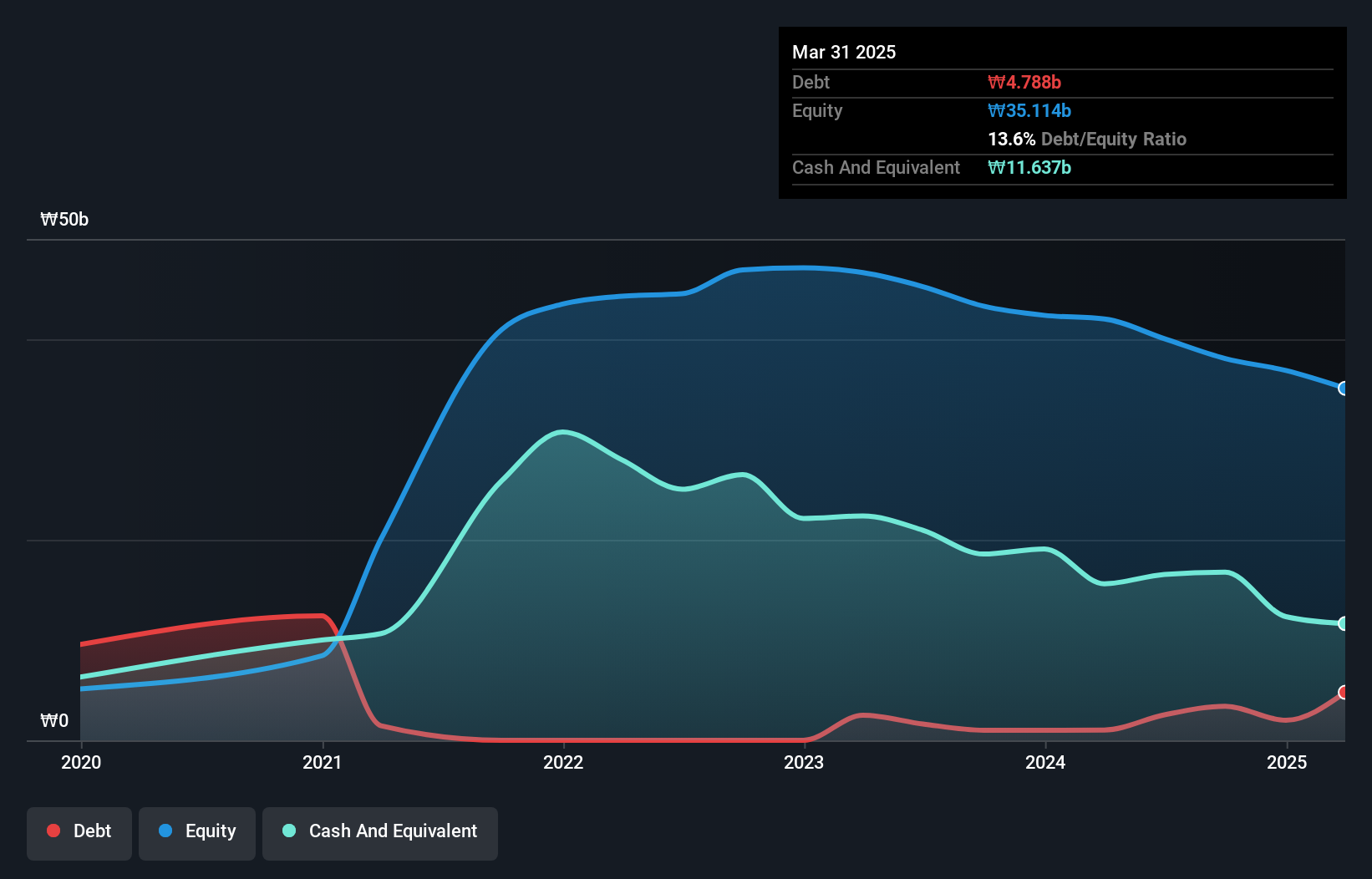Some say volatility, rather than debt, is the best way to think about risk as an investor, but Warren Buffett famously said that 'Volatility is far from synonymous with risk.' It's only natural to consider a company's balance sheet when you examine how risky it is, since debt is often involved when a business collapses. We note that Plateer Co., Ltd. (KOSDAQ:367000) does have debt on its balance sheet. But is this debt a concern to shareholders?
What Risk Does Debt Bring?
Debt and other liabilities become risky for a business when it cannot easily fulfill those obligations, either with free cash flow or by raising capital at an attractive price. Part and parcel of capitalism is the process of 'creative destruction' where failed businesses are mercilessly liquidated by their bankers. While that is not too common, we often do see indebted companies permanently diluting shareholders because lenders force them to raise capital at a distressed price. Of course, plenty of companies use debt to fund growth, without any negative consequences. The first thing to do when considering how much debt a business uses is to look at its cash and debt together.
What Is Plateer's Net Debt?
As you can see below, at the end of March 2025, Plateer had ₩4.79b of debt, up from ₩1.03b a year ago. Click the image for more detail. But it also has ₩11.6b in cash to offset that, meaning it has ₩6.85b net cash.

How Healthy Is Plateer's Balance Sheet?
The latest balance sheet data shows that Plateer had liabilities of ₩13.4b due within a year, and liabilities of ₩945.1m falling due after that. Offsetting this, it had ₩11.6b in cash and ₩8.25b in receivables that were due within 12 months. So it can boast ₩5.55b more liquid assets than total liabilities.
This surplus suggests that Plateer has a conservative balance sheet, and could probably eliminate its debt without much difficulty. Succinctly put, Plateer boasts net cash, so it's fair to say it does not have a heavy debt load! When analysing debt levels, the balance sheet is the obvious place to start. But you can't view debt in total isolation; since Plateer will need earnings to service that debt. So when considering debt, it's definitely worth looking at the earnings trend. Click here for an interactive snapshot.
See our latest analysis for Plateer
Over 12 months, Plateer made a loss at the EBIT level, and saw its revenue drop to ₩30b, which is a fall of 5.5%. That's not what we would hope to see.
So How Risky Is Plateer?
We have no doubt that loss making companies are, in general, riskier than profitable ones. And we do note that Plateer had an earnings before interest and tax (EBIT) loss, over the last year. Indeed, in that time it burnt through ₩6.2b of cash and made a loss of ₩6.9b. But at least it has ₩6.85b on the balance sheet to spend on growth, near-term. Overall, its balance sheet doesn't seem overly risky, at the moment, but we're always cautious until we see the positive free cash flow. The balance sheet is clearly the area to focus on when you are analysing debt. But ultimately, every company can contain risks that exist outside of the balance sheet. To that end, you should learn about the 2 warning signs we've spotted with Plateer (including 1 which is a bit unpleasant) .
At the end of the day, it's often better to focus on companies that are free from net debt. You can access our special list of such companies (all with a track record of profit growth). It's free.
New: Manage All Your Stock Portfolios in One Place
We've created the ultimate portfolio companion for stock investors, and it's free.
• Connect an unlimited number of Portfolios and see your total in one currency
• Be alerted to new Warning Signs or Risks via email or mobile
• Track the Fair Value of your stocks
Have feedback on this article? Concerned about the content? Get in touch with us directly. Alternatively, email editorial-team (at) simplywallst.com.
This article by Simply Wall St is general in nature. We provide commentary based on historical data and analyst forecasts only using an unbiased methodology and our articles are not intended to be financial advice. It does not constitute a recommendation to buy or sell any stock, and does not take account of your objectives, or your financial situation. We aim to bring you long-term focused analysis driven by fundamental data. Note that our analysis may not factor in the latest price-sensitive company announcements or qualitative material. Simply Wall St has no position in any stocks mentioned.
About KOSDAQ:A367000
Plateer
Provides information technology consulting services in the areas of e-Commerce, marketing, and DevOps platform technology in South Korea.
Adequate balance sheet with very low risk.
Market Insights
Community Narratives



